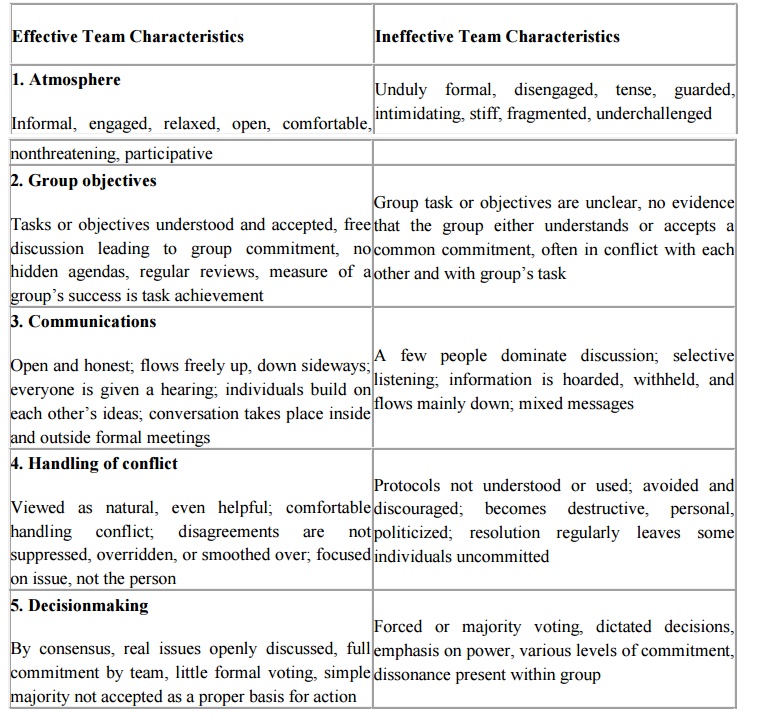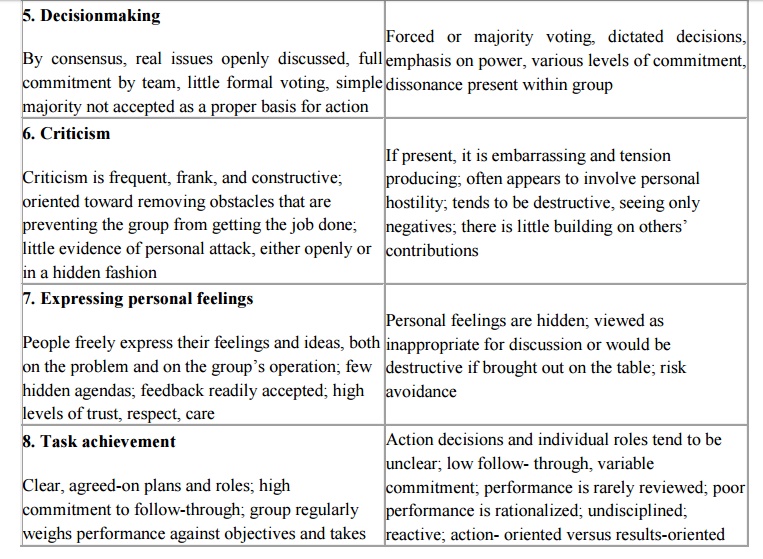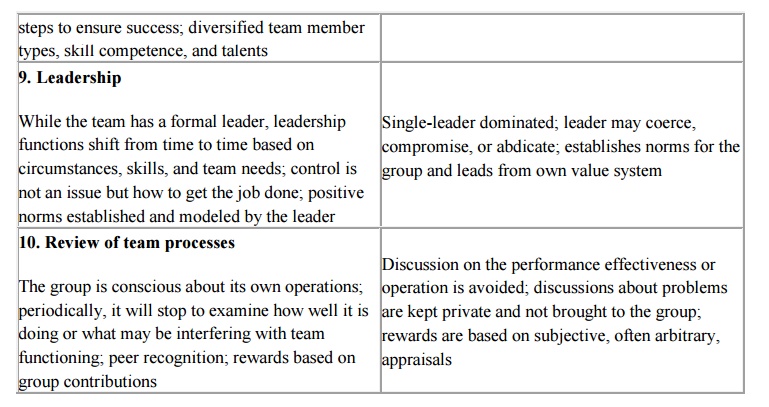Chapter: Business Science : Managerial Behavior and Effectiveness : Defining The Managerial Job
Effective and Ineffective Job behavior
Effective and Ineffective Job behavior
Probably the greatest hurdle in developing productive
and satisfying relationships among professional and nonprofessional staff in
the local church is understanding what components are necessary to create a
team. Most staff and senior pastors desperately desire positive work
relationships. Many people who give their time to the local church would like
to experience fruitful ministry among those they can also call close friends.
Quality staff relationships are experienced on
purpose, not accidentally. They are the product of hard work in defined areas of
relationship and daily work processes. While some leaders may point enviously
to this staff or that staff and believe something unusual is taking place
because they are getting along, the truth is that almost any staff can learn
what makes a staff effective. The divine law of sowing and reaping applies to
staff development—sow good things and you will reap the desired fruit.
Conversely, sow maliciously or without understanding and bushels of fruit from
an undesired harvest will show up in your work relationship. This tool will
help you sow into your staff wisely.
The
following chart is a tool for identifying the critical components of
professional and nonprofessional church workers that make their efforts
collaborative or non collaborative in the truest sense. Note: Your church‘s
accepted; normal organizational-management style may not fit what is here
described as effective team characteristics. There are, of course, other ways
to lead church leaders, but not all create an environment of shared ministry. The
assumption of this tool is that high collaboration is desired. To experience
high levels of staff input and significant sharing of ministry responsibility
throughout your church, the characteristics organized under effective team
characteristics (left column) need to become a reality. As you read through the
10 characteristics below, think about the work relationships of your primary
ministry group and which side of the page they favor.



1. Effective leaders are clear on what matters,
communicate what matters, and model the desired values and behaviours. Ineffective
leaders are either not clear on what matters or simply not able to able-willing to rule some stuff out. Ineffective leaders
suck at communicating what matters. And they don‘t live-model-embody the fine
sounding values, beliefs, and behaviours that they talk about.
2. Effective leaders name and insist on dealing with
the most important issues no matter how unpleasant these issues are.
Ineffective leaders find all kinds of reasons and excuses for not dealing with the real issues and instead spend
their time on what they are comfortable with.
3. Effective leaders focus on getting a
rounded-realistic-fact based picture of reality. And as such they give real
thought to who needs to take part in the conversation, and how to create a
context that calls forth the ‘truth of each participant’. Please
note that feelings are facts! Ineffective
leaders are drunk on their own importance and thus push their views, their
agenda, on to the favoured few that they invite to the conversation.
4. Effective leaders deal with the thorny issues in a
way that tends to build the self-esteem, confidence, learning, and goodwill of
their people. Ineffective leaders issue orders, discount the concerns-views of their people, and
make threats thus rupture one of the most critical pillars of an effective
organisation: relationship and emotional affinity and loyalty.
5. Effective leaders think about the well-being of the
wider system – all stakeholders inside and outside the business. Ineffective
leaders focus on what matters to them and their favoured constituency.
6. Effective leaders first hold themselves
accountable. And by doing so they create the powerful access to holding their
people accountable. Ineffective leaders hold others to account but not themselves. And sometimes they don‘t
even hold others accountable for fear of being confronted with their own lack
of accountability.
7. Effective leaders get the critical importance of integrity. As such they put in place powerful
‗instruments‘ that will: detect any ‗out of integrity‘ ways of showing up in
the world; and call the effective leader to get back into integrity quickly and
clean up any mess s/he has made. Ineffective leaders don‘t get that integrity
is essential to ‗workability‘ and ‗performance‘ and as such there is little fit
between what they say and what they do. For ineffective leaders, integrity is
optional.
Related Topics